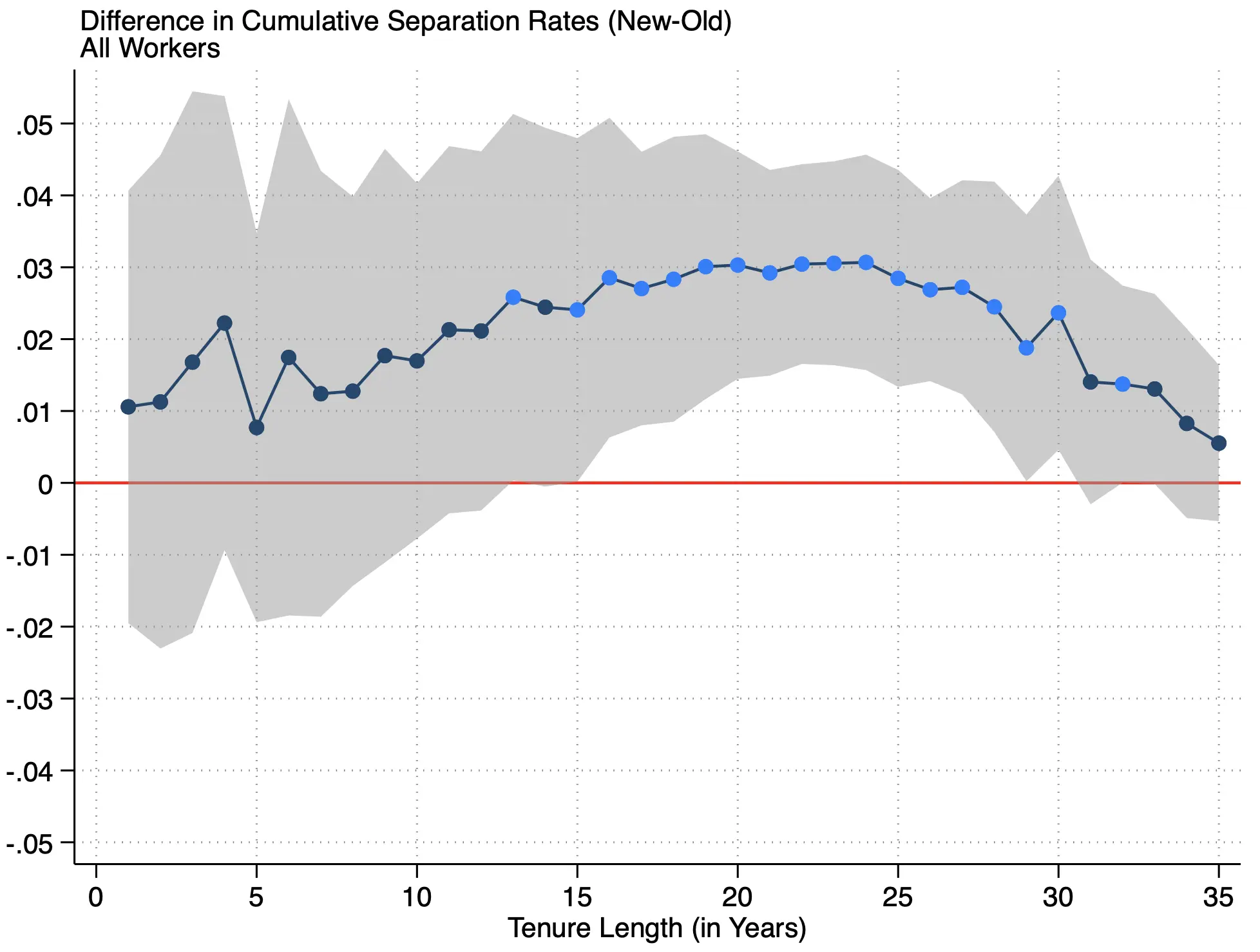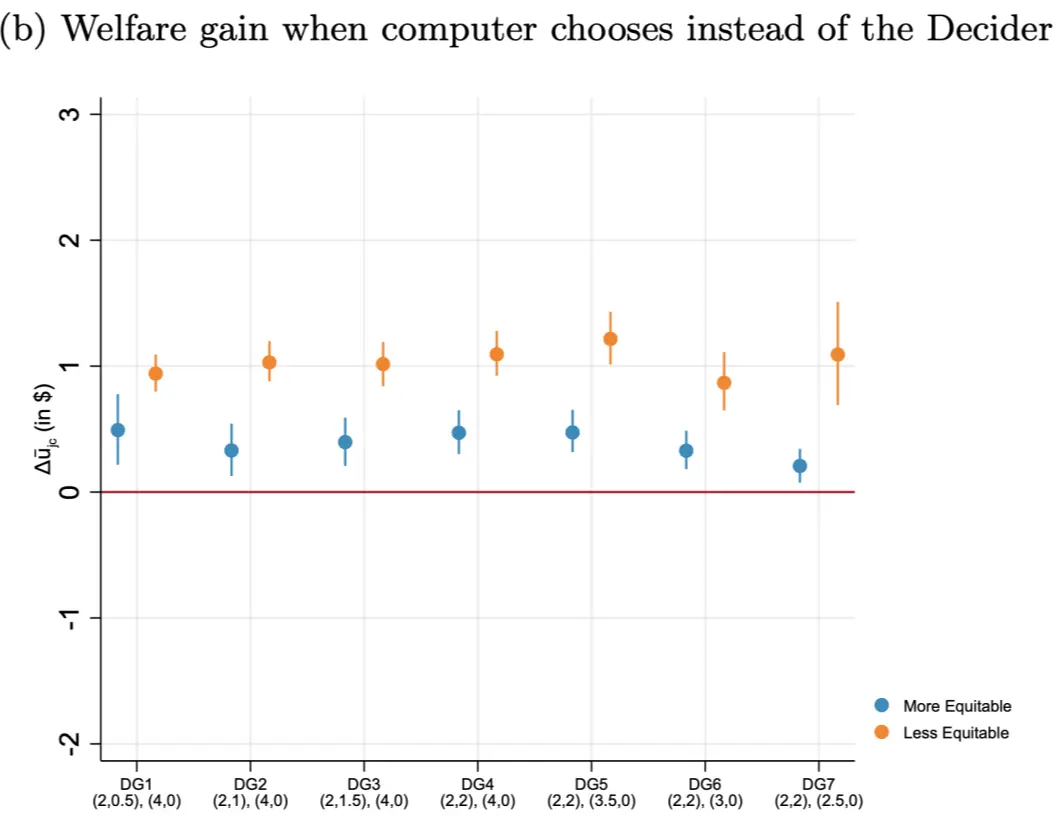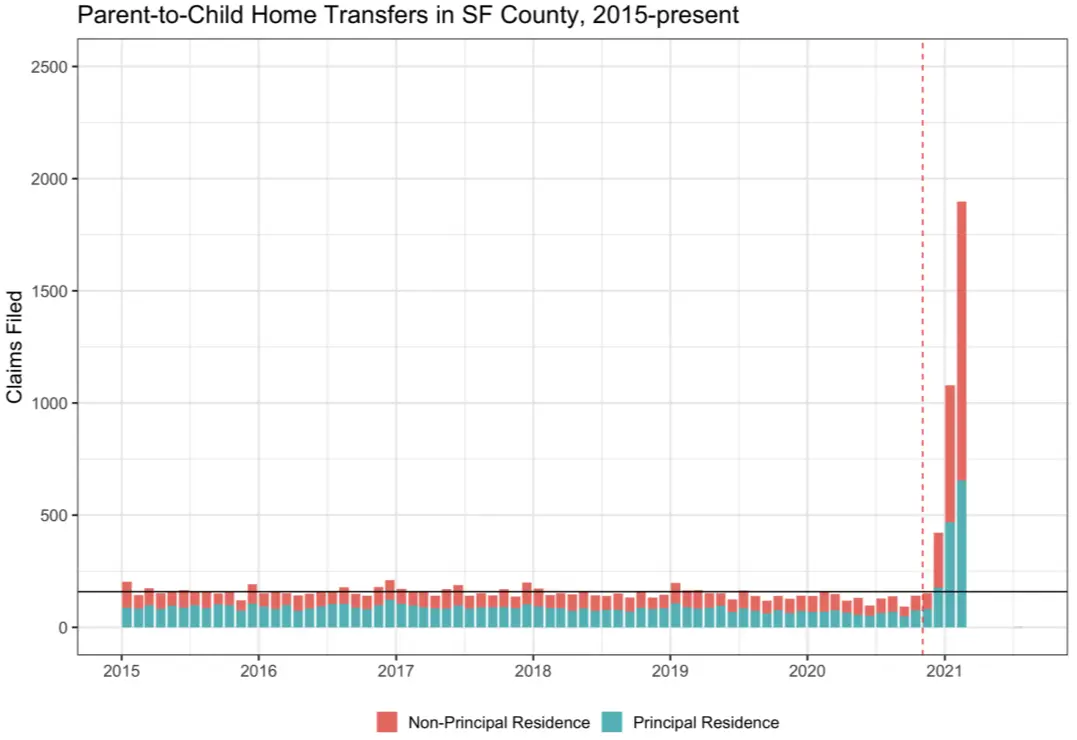
From Pensions to Personnel: The Incentive Effects of Retirement Benefits on Retention [JMP]
with Caleb Wroblewski
Private retirement plans are a crucial component of worker’s compensation in the U.S. and have long been thought to influence labor supply. This study uses a cohort-based regression discontinuity design to examine how a change in the retirement plan at the largest U.S. employer, the federal government, impacted the retention of employees over their full career. Workers with less valuable employer pensions but more portable retirement benefits were more likely to separate from the government around 15 and 30 years after beginning federal service. These effects are driven by highly productive workers, identified through supplemental compensation or early promotions, and workers with better outside options. These findings demonstrate that non-wage compensation impacts labor supply decisions across a worker's lifecycle and the distribution of human capital over time, particularly in labor markets where employers compete through diverse compensation structures.


